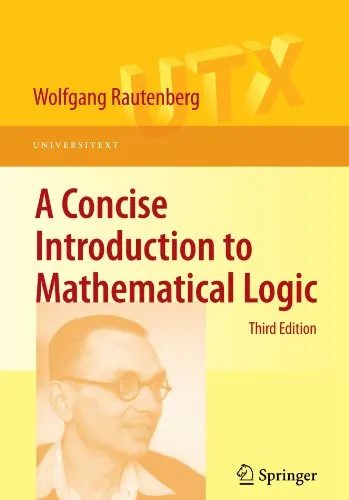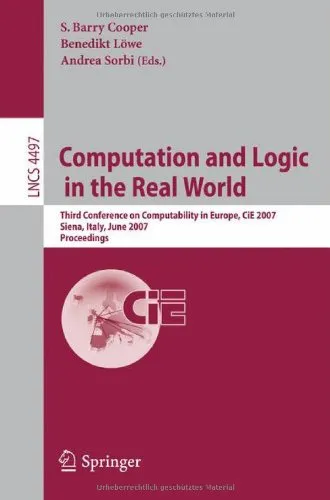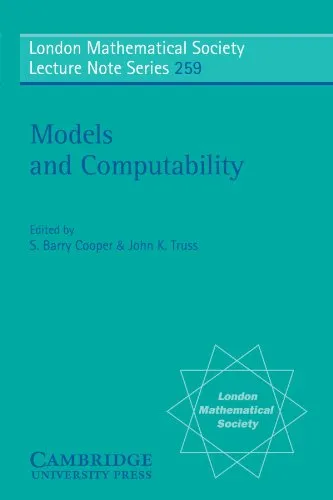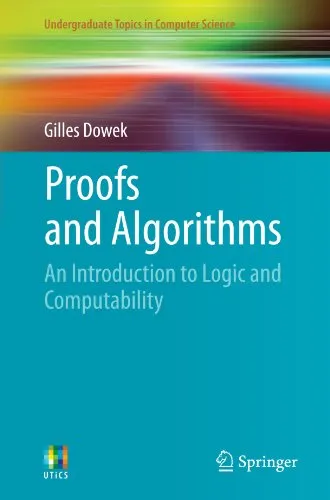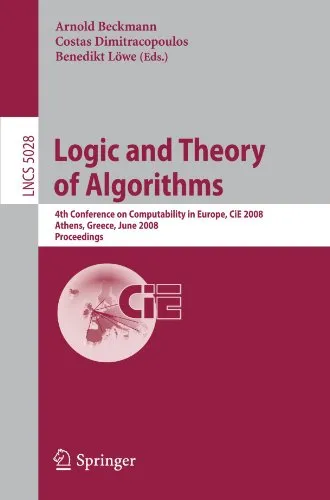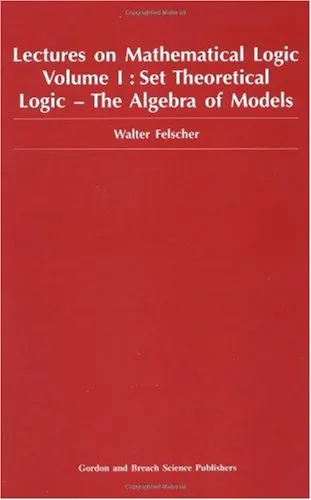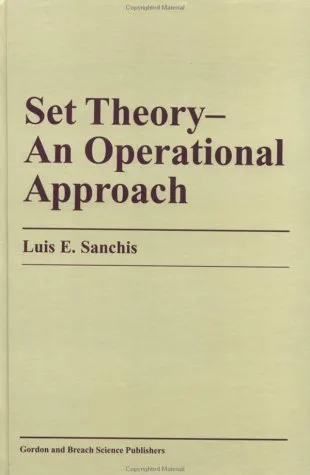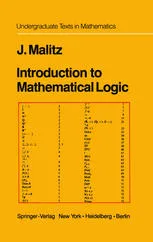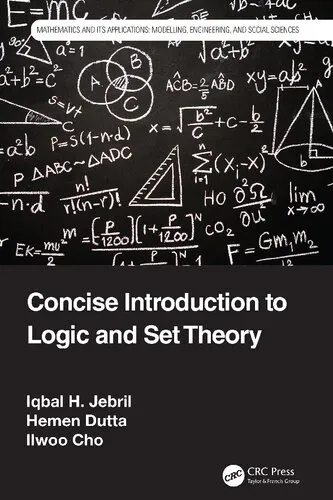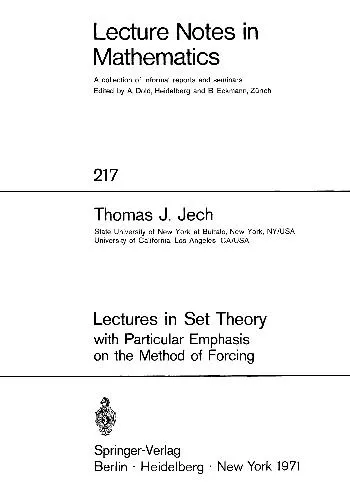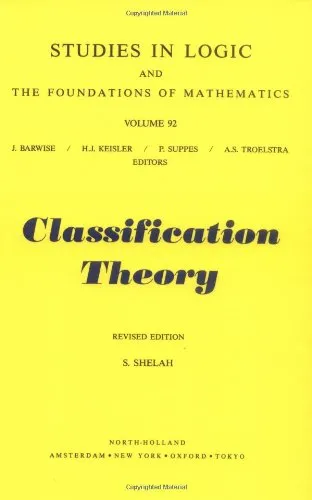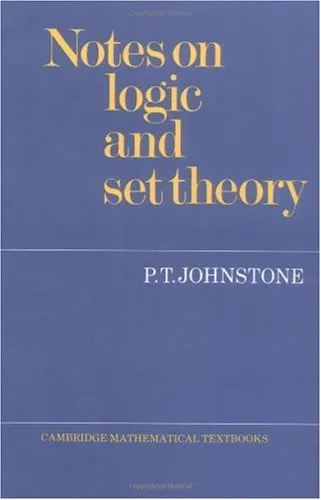A Concise Introduction to Mathematical Logic
4.5
Reviews from our users

You Can Ask your questions from this book's AI after Login
Each download or ask from book AI costs 2 points. To earn more free points, please visit the Points Guide Page and complete some valuable actions.Related Refrences:
Introduction to 'A Concise Introduction to Mathematical Logic'
'A Concise Introduction to Mathematical Logic' is a meticulously crafted guide that navigates the intricate pathways of logic, serving both as a beacon for students new to the field and a resourceful compendium for seasoned professionals. Authored by Wolfgang Rautenberg, this text is characterized by its clarity, cohesion, and conciseness, offering a comprehensive overview of the essential facets of mathematical logic.
Detailed Summary of the Book
The book begins with a foundational introduction that sets the stage for deeper exploration into formal logic. It methodically guides the reader through the principles and techniques fundamental to understanding logic's core. This includes a thorough examination of propositional logic and first-order logic, detailed with their respective syntax and semantics.
Moving beyond the basics, the book delves into proof theory and model theory, offering insights into the soundness, completeness, and compactness theorems. Through precise definitions and propositions, the text unravels the complexities involved in logical deductions and structures.
Subsequent chapters address advanced topics such as set theory, recursion theory, and decidability, laying a solid framework for understanding the limitations and capabilities inherent in computational and logical systems. Each section is buttressed with exercises of varying difficulty, providing valuable practice and consolidation of the material covered.
Key Takeaways
'A Concise Introduction to Mathematical Logic' offers several key takeaways for its readers:
- An understanding of the fundamental principles of logical reasoning and structure.
- Comprehension of advanced logical concepts such as Gödel's theorems and the Löwenheim-Skolem theorem.
- The ability to apply logical frameworks to both theoretical and practical problems in mathematics and computer science.
- Enhanced problem-solving skills through rigorous exercises and examples.
Famous Quotes from the Book
"Logic is the anatomy of thought." — This quote exemplifies the book's exploration into how logic underpins rational thinking and systematic problem-solving.
"In the realm of logic, the simple reveals itself as the complex." — A reflection on how the simplest logical principles can expand to address the most complex systems and problems.
Why This Book Matters
The significance of 'A Concise Introduction to Mathematical Logic' extends beyond academia. In a world increasingly driven by data and algorithmic processes, having a firm grasp of logic is indispensable. This text not only equips readers with the intellectual tools needed for success in fields like computer science, mathematics, and philosophy but also promotes critical thinking and precision—a requisite in scientific inquiry and technological innovation.
The book's accessibility makes it a valuable resource for self-learners and students who wish to delve into logic without being overwhelmed. By balancing rigorous theoretical insights with practical exercises, Rautenberg has crafted a text that is both thorough and approachable, appealing to a broad spectrum of readers.
In summation, 'A Concise Introduction to Mathematical Logic' stands as an essential text in the landscape of logical and mathematical education. It serves as both an introductory guide and a detailed reference, making it a timeless addition to any scholar’s library.
Free Direct Download
You Can Download this book after Login
Accessing books through legal platforms and public libraries not only supports the rights of authors and publishers but also contributes to the sustainability of reading culture. Before downloading, please take a moment to consider these options.
Find this book on other platforms:
WorldCat helps you find books in libraries worldwide.
See ratings, reviews, and discussions on Goodreads.
Find and buy rare or used books on AbeBooks.
1417
بازدید4.5
امتیاز0
نظر98%
رضایتReviews:
4.5
Based on 0 users review
Questions & Answers
Ask questions about this book or help others by answering
No questions yet. Be the first to ask!
